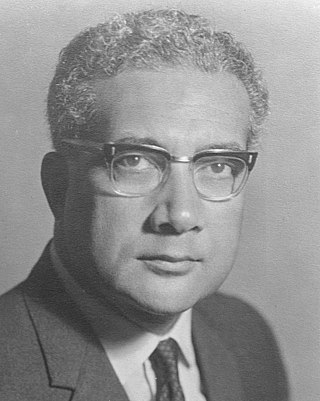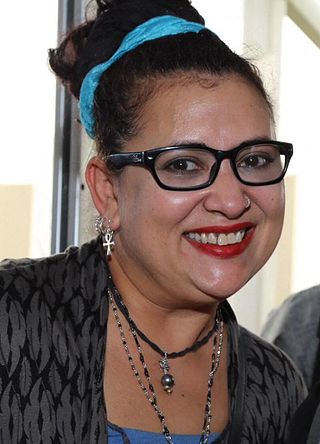George Speight, also known by his pseudonym Ilikimi Naitini, is a Fijian businessman and politician who was the leader of the 2000 Fijian coup d'état, in which he and rebel soldiers from Fiji's Counter Revolutionary Warfare Unit seized the Fijian Parliament and held Prime Minister Mahendra Chaudhry and 35 other MP's hostage from 19 May 2000 to 13 July 2000. After being convicted of treason for leading the coup, he was serving a sentence of life imprisonment until receiving a presidential pardon on 18 September 2024.

The United Fiji Party was a political party in Fiji. It was founded in 2001 by Prime Minister Laisenia Qarase as a power base; it absorbed most of the Christian Democratic Alliance and other conservative groups, and its endorsement by the Great Council of Chiefs (Bose Levu Vakaturaga) caused it to be widely seen as the successor to the Alliance Party, the former ruling party that had dominated Fijian politics from the 1960s to the 1980s. It drew its support mainly from indigenous Fijiians.

RatuSir Kamisese Mara, was a Fijian politician who served as Chief Minister from 1967 to 1970, when Fiji gained its independence from the United Kingdom, and, apart from one brief interruption in 1987, as the first Prime Minister from 1970 to 1992. He subsequently served as president from 1993 to 2000.

Tupeni Lebaivalu Baba was a Fijian academic, politician, and Cabinet Minister. A founding member of the Fiji Labour Party, he served as a Cabinet Minister in the government of Timoci Bavadra until removed from office by the 1987 Fijian coups d'état, and then one of the two Deputy Prime Ministers in the government of Mahendra Chaudhry until removed from office by the 2000 Fijian coup d'état. After splitting with Choudhry in the wake of the coup, he founded the New Labour Unity Party to contest the 2001 election, but failed to win a seat in Parliament. He unsuccessfully attempting to re-enter politics at the 2006 election under the banner of the Soqosoqo Duavata ni Lewenivanua, and again at the 2014 election as part of the Social Democratic Liberal Party.

The Fijian coups d'état of 1987 resulted in the overthrow of the elected government of Fijian Prime Minister Timoci Bavadra, the deposition of Elizabeth II as Queen of Fiji, and in the declaration of a republic. The first coup d'état, in which Bavadra was deposed, took place on 14 May 1987; a second coup d'état on 25 September ended the monarchy, and was shortly followed by the proclamation of a republic on 10 October. Both military actions were led by Lieutenant Colonel Sitiveni Rabuka, then third in command of the Royal Fiji Military Forces.

The Conservative Alliance was a right-wing political party in Fiji, and a member of the ruling coalition government. It was commonly known as the CAMV, a combination of the initials of its English and Fijian names. At its annual general meeting on 17 February 2006, the party voted to dissolve itself and merge with its coalition partner, the Soqosoqo Duavata ni Lewenivanua (SDL). The President of the party at the time of its dissolution was Ratu Tanoa Cakobau, a Bauan chief, while Ratu Josefa Dimuri served as General Secretary. For legal reasons, Parliamentary members of the disbanded party maintained a separate caucus in the House of Representatives, under the leadership of Ratu Naiqama Lalabalavu, until the end of the parliamentary term, on 27 March 2006.

The Fiji coup d'état of 2000 was a civilian coup d'état by hardline i-Taukei nationalists against the elected government of an Indo-Fijian Prime Minister, Mahendra Chaudhry on 19 May 2000. This was followed by an attempt on 27 May by President Ratu Sir Kamisese Mara to assert executive authority, and then by a military coup on 29 May by Republic of Fiji Military Forces Commander Commodore Frank Bainimarama.

Two military mutinies took place in connection with the civilian coup d'état that occurred in Fiji in 2000, the first while the rebellion instigated by George Speight was in progress, and the second four months after it had ended.

Poseci Waqalevu Bune was a Fijian civil servant, diplomat, politician and Cabinet Minister. He served as chair of the Public Service Commissioner, secretary to the Prime Minister, and as Fiji's permanent representative to the United Nations, as well as a Cabinet Minister in the governments of Mahendra Chaudhry and Laisenia Qarase, and in the military regime of Frank Bainimarama. Bune died of prostate cancer on 22 November 2023, at the age of 77.
AdiAteca Moceiwaqa Mara Ganilau was a Fijian public figure and the eldest daughter of the former Prime Minister and President, the late Ratu Sir Kamisese Mara. Later in life she made many statements to the press about her family and the government.

A number of prominent participants in the 2000 Fijian coup d'état were tried, and some convicted, in 2004 and 2005.

General elections were held in Fiji between 6 and 13 May 2006.

Fiji's President, Ratu Sir Kamisese Mara resigned under duress on May 29, 2000, and handed power over to Commodore Frank Bainimarama. In what politicians have called a "coup within a coup," Ratu Mara was whisked away on a warship on May 28. "If the Constitution goes, I go," he defiantly declared. A group including Police Commissioner Isikia Savua asked for his resignation.

Hinduism in Fiji is the second-largest religion, and primarily has a following among Indo-Fijians, the descendants of indentured workers brought to Fiji by the British as cheap labour for colonial sugarcane plantations. Hindus started arriving in Fiji starting in 1879 and continuing through 1920, when Britain abolished the slavery-like indenture system. Fiji identifies people as "Indo-Fijians" if they can trace their ancestry to the Indian subcontinent, Hindus form about 27.9% the population of Fiji.

The Fijian coup d'état of December 2006 was a coup d'état in Fiji carried out by Commodore Frank Bainimarama against Prime Minister Laisenia Qarase and President Josefa Iloilo. It was the culmination of a political crisis that had begun the previous year when the Qarase government introduced three bills to the Fijian Parliament. The Qoliqoli, Land Tribunal, and Reconciliation, Tolerance, and Unity Bills dealt with the ongoing ethnic conflicts in Fiji and the aftermath of the 2000 coup, and were considered to be pro-ethnic Fijian. Bainimarama, the Commander of the Republic of Fiji Military Forces (RFMF), presented the government with a list of demands on October 16 that included withdrawing the bills. Attempts at negotiation failed and the military launched a coup on 4 December. Parliament was dissolved, Qarase and his cabinet were dismissed, and some civilian officials were placed under house arrest. After the Great Council of Chiefs refused to appoint a cabinet friendly to the military, Bainimarama reached an understanding with Iloilo and reinstated him as president on 4 January 2007. Iloilo then appointed Bainimarama acting prime minister in charge of the Interim Cabinet.

Indo-Fijians, also known as Indian Fijians, are Fijian citizens of South Asian descent, and include people who trace their ancestry to various regions of the Indian subcontinent. Although Indo-Fijians constituted a majority of Fiji's population from 1956 through the late 1980s, discrimination and the resulting brain drain resulted in them numbering 313,798 (37.6%) out of a total of 827,900 people living in Fiji as of 2007.

Sharon Bhagwan-Rolls is a Fijian political activist of Indian descent known for political activism within the intersections of feminism, media, climate change and peace.
RatuRakuita Saurara Vakalalabure is a Fijian lawyer and former politician who served as Deputy Speaker of the House of Representatives of Fiji from 2001 to 2004. In August 2004 he was convicted of participation in the 2000 Fijian coup d'état and sentenced to six years' imprisonment. He was the son of Ratu Tevita Vakalalabure, who served in both houses of Parliament from the 1970s to the 1990s.

Fiji's fourth constitution, the 2013 Constitution of Fiji, was signed into law by President Ratu Epeli Nailatikau on 6 September 2013, coming into effect immediately. It is the first to eliminate race-based electoral rolls, race-based seat quotas, district-based representation, the unelected upper chamber, and the role of the hereditary Council of Chiefs. It vests sole legislative authority in a single-chamber, 50-seat, at-large Parliament, to be first convened following general elections in 2014. It is also the first ever to grant the right to multiple citizenship, and lowers the voting age to 18.











